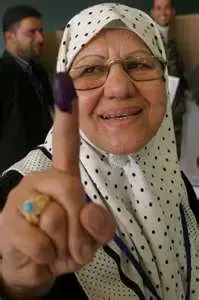UNFPA operations at all levels are guided by the importance of ensuring gender equality and women’s empowerment. UNFPA will strengthen gender equality programming and will work to ensure that girls and women are able to benefit equally and fully and have access to the opportunities and resources made available through UNFPA-supported interventions. UNFPA is therefore committed to make a systematic effort to engender data collection and analysis, policies, programmes and services to maximize efficiency and effectiveness of interventions, including strengthened efforts to engage men and boys as partners to advance and promote gender equality.
Women and young females have different and unequal access to and use of basic rights, and different and unequal opportunities for protection, promotion and maintenance of their rights. In the past years, a pattern of violence against women has emerged, which has been difficult to document because of its cultural and social roots. At the same time, deeply rooted gender inequality in essential services remains a barrier to social justice and development and deprives Iraq of a significant source of human potential, contravening Iraq’s commitments under the MDGs as well as the global Convention on the Elimination of All Forms of Discrimination against Women (CEDAW).
The CPAP provides more a detailed perspective on Iraq’s Gender Equality gaps and their immediate root causes. It aims to contribute to the following outcome: “Institutionalizing services and operational mechanisms for protecting and empowering women and young girls, in line with Security Council resolution 1325 on women, peace and security.”
The programme has targeted 2 major goals to focus on in the upcoming four years:
- The institutional, technical and operational capacity of line ministries and local non-governmental organizations are strengthened to secure services for survivors of violence against women (VAW).
- The capacity of women’s non-governmental organizations is strengthened to advocate gender equality, women’s rights, and reproductive health, and to promote women’s empowerment and participation in the peace building and development of Iraq.
UNFPA Gender: Interventions
- The Gender Programme in UNFPA’s intervention is relatively new in Iraq, having started in 2008. It is foreseen that the programme will continue its work, addressing the impact of the conflict upon women’s status in the country’s development trends, as well as the continued challenge of political disputes as an overarching issue that impedes the progress of the status of women. From 2008-2010, the Gender Programme proposed prevention and responses for ending GBV through the provision of:
- A two year multi-sector joint program for Combating Violence against Women (CVAW) in Iraq ending mid 2012. It aims to contribute to the following outcome “Improved environment for the protection of women’s rights and prevention of VAW throughout Iraq”.
- A Project entitled: “Improving Prevention and Response to GBV in Four Governorates in Iraq: Erbil, Baghdad, Najaf and Basra”. The project focuses on strengthening the capacity of service delivery points (centres) and district facilities to deal with GBV survivors in four governorates in Iraq as a protection measure for young girls and women in crisis. It as well aims to increase advocacy for and awareness of GBV issues and services available to women in these communities.
- An ongoing advocacy and campaigning for CVAW and ending GBV through such activities as 16 days of activism, and International Women’s Day. UNFPA took the lead in conducting these activities in collaboration with the Gender Task Force and Advocacy Team.
During the upcoming four years, the Programme will conduct the following interventions:
-
Raising stakeholder knowledge on the extent/scope/level/range, forms and effects of VAW.
-
Incorporating the national VAW strategy plan of Action into sectoral action plans and local services.
-
Developing sectoral capacities on norms and standards for managing cases of GBV, a sectoral statistics system, and a referral system.
-
Increasing the institutional capacity building of female grassroots associations.
-
Supporting networks among women’s NGOs at the local and national levels with linkages to the parliamentarian women’s committee.
-
Enhancing the partnership between interfaith based organizations and local communities to advocate for women’s right for a life free of VAW.
National Partners (at Federal and Kurdistan Regional Government)
State Ministry of Women Affairs / Kurdistan High Council of Women; Ministry of Health;Ministry of Interior, Ministry of Social Affairs; Women NGOs; Parliament committees; and University Research Centers
UN Partners:
UN WOMEN, UNDP, WHO, FAO


